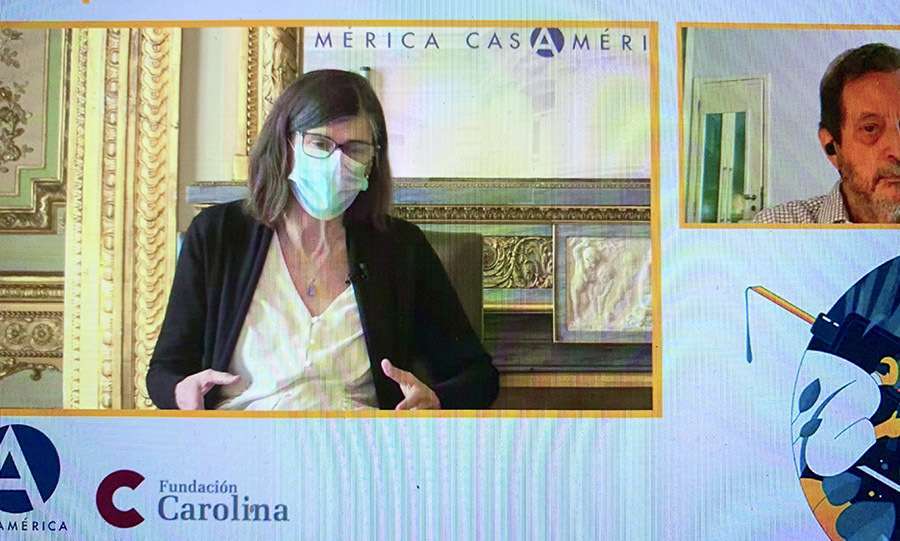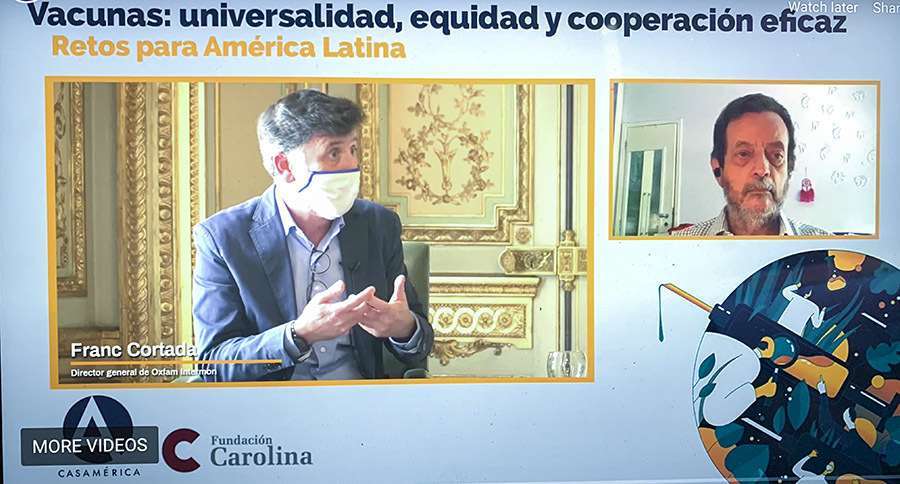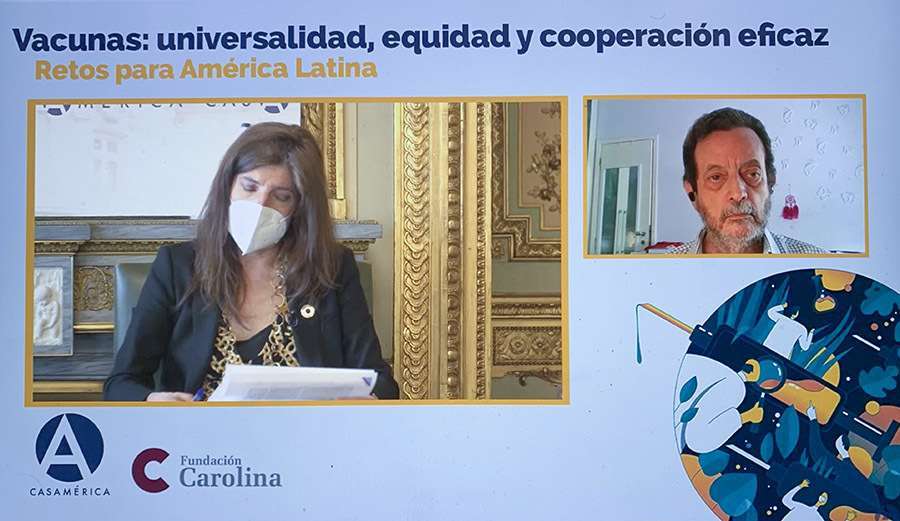Latin America returns to the levels of poverty it had 12 years ago

The distribution of vaccines in Latin America is a great challenge and the sale to third countries represents a problem in the regional market.
On Monday 19 April, Casa América, together with the Carolina Foundation, held a live conference, entitled a new session of the Dialogues with Latin America series under the title 'Vaccines: universality, equity and effective cooperation. Challenges for Latin America', with the participation of Jorge Zepeda Bermúdez, representative of the National School of Public Health of the South American country; Miriam Alía, worker of Doctors without Borders Spain; Fran Cortada, director general of Oxfam Intermón; and Pilar Aparicio, director general of Public Health of the Ministry of Health of the Government of Spain. The event was moderated by Ángeles Moreno, Secretary of State for International Cooperation.

The main topic of discussion was the mechanisms for distributing vaccines in Latin America, a challenge that poses a major challenge, and how the sale of vaccines to third countries or bilaterally represents a problem in the vaccine market in the region. The pandemic has hit the economies of all countries hard, but the Latin American region is undoubtedly one of the hardest hit, with more than 20 million people falling into extreme poverty. One of the great losses of this pandemic is that it has set back indicators in the struggle to meet the 2030 Agenda. The management of vaccine administration has not been consensual, there was no global response, vaccine production has not been sufficient, causing demand to grow exponentially, especially in the poorest countries. Patent deregulation by pharmaceutical companies is a position that is gaining momentum in public opinion. Throughout the dialogue, the Ibero-American Summit, to be held on 21 April in Andorra, was mentioned several times.

Jorge Zepeda began the debate by speaking of the worrying situation in Latin America, a region that represents 8% of the world's population and has 25% of the world's COVID-19: "Our region is in constant effervescence, with different realities and political and ideological diversity, which makes joint action and proposals for integration difficult". In the last year, a large part of the population earns less than 2 dollars a day, which is an indicator of extreme poverty. The representative of the Brazilian National School of Public Health stated that it is impossible to know anyone in Brazil who has not had a friend die, and that one of the major problems is access to health technology, one of the major topics of discussion in international organisations. Zepeda concluded by referring to the low production capacity of vaccines and that pharmaceutical companies should release patents, as there are more than 2,000 requests for them and this would be turning into a monopolisation by one of the pharmaceutical companies.

Miriam Alía was the second to present her ideas, and explained that one of the biggest problems are the most vulnerable populations such as refugees. The Pan American Health Organisation (PAHO), collectively, is in charge of the mechanism for distributing vaccines, Latin America was the first region to combat measles, so the solution must always be global or regional in scope, Alía commented. Inequality has led to a nationalism of vaccines, within the same regions, internal divisions within the same territory, which has led to unequal groups, such as migrants. Fran Cortada commented that 140 million people in Latin America have lost their jobs, as most of them had to debate between losing their jobs or risk being infected. "The context where we have the highest levels of poverty, we have set back 12 years of progress," Cortada said. The director general of Oxfam Intermón commented on the agreements made by the countries of the region to obtain vaccines: only 10% will be covered by the Covax mechanism, seven states have made bilateral agreements with the major powers and 12 countries will depend on donations, as the asymmetry of the region is very great, and vaccines currently only end up in Chile, Brazil, Argentina and Mexico.

Finally, the representative of the Spanish government, Pilar Aparicio, explained how the solidarity plan with Covax works, and how, through the European Union, they have been working together successfully. "The European Union was right to work together on the vaccination process, criteria and vaccination plan, and this regional cooperation allows access to vaccines". According to the Director-General of the Ministry of Health, cooperation with Latin American countries has been technical, and the vaccination strategy in Spain has been carried out in coordination with the autonomous communities, with an ethical component, without discriminating against the population









